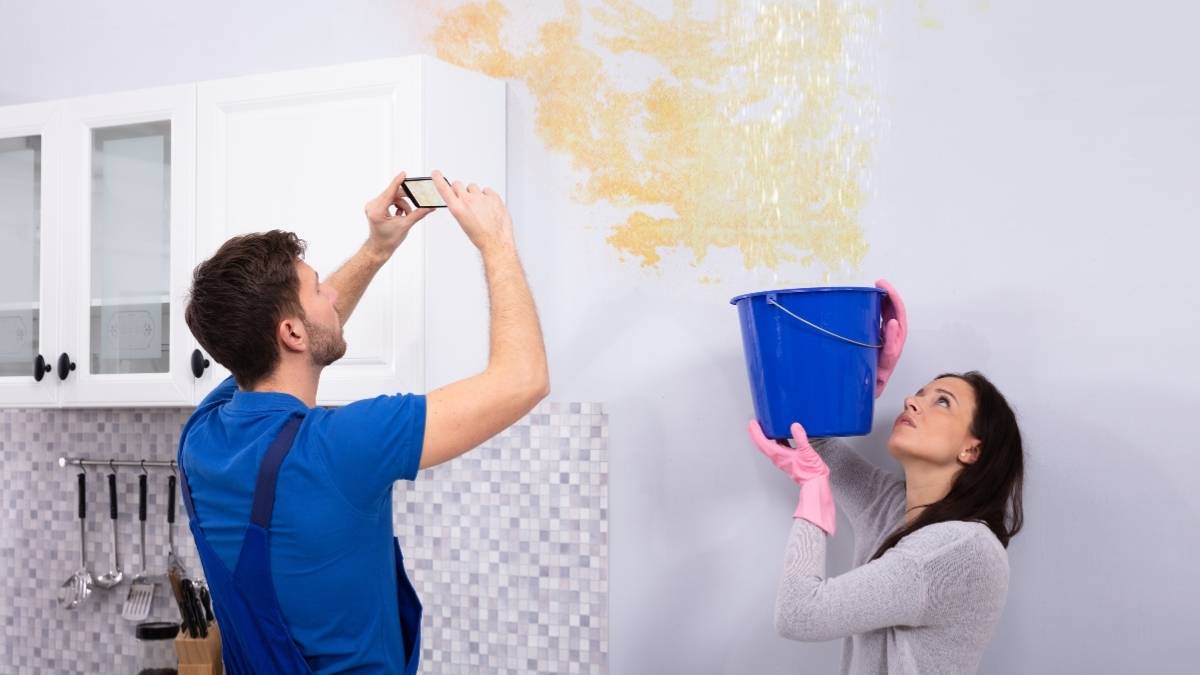Key Takeaways:
- Water damage can be catastrophic, but you can safeguard your home with preventative measures.
- Routine maintenance, timely repairs, and smart home investments can reduce water damage risks.
- Proper water damage preparedness and response can preserve your home’s value and safety.
- Keep up with the most recent developments and trends in mitigating water damage.
Table of Contents
Emergency Preparedness and Response
No matter how careful you are, water damage might still happen. It’s crucial to be ready and know how to react.
Create an Emergency Plan
Create an emergency plan that outlines how to contact nearby experts and provides step-by-step instructions in the event of water damage. Make sure all household members are familiar with the plan. Include a list of critical belongings that should be moved to higher ground or protected if you face a flooding threat.
Quick Action
In the event of water damage, immediate action is crucial to minimize destruction. Turning off the main water supply, removing standing water, and contacting professionals promptly can make a significant difference. For effective recovery, consider contacting the Best Restoration Company to ensure your home is restored to its original state with professionalism and care.
Understanding the Causes of Water Damage
Water damage can originate from multiple sources, including natural disasters, plumbing failures, and household mishaps. You may prevent damage to your house by being proactive and knowing these typical reasons.
Natural Disasters
Hurricanes, floods, and intense rains are natural catastrophes that can cause substantial water damage. While you can’t control nature, you can prepare your home to minimize the impact of such events. Installing storm shutters, reinforcing your roof, and creating barriers around your property can help mitigate damage. Additionally, it’s essential to have proper home insurance that covers natural disasters.
Plumbing Failures
Leaky pipes, clogged drains, and malfunctioning appliances can cause internal water damage. Routine maintenance and inspections can keep plumbing systems in better condition. Simple tasks like checking under sinks for leaks, inspecting hoses connected to appliances, and ensuring that drains are free from blockages can save you from major headaches.
Household Accidents
Incidents like leaving a tap running or improperly using appliances can also damage water. Educating household members on best practices can reduce these risks. Please ensure all family members know how to shut off the water supply in an emergency and teach them the importance of not overloading washing machines or dishwashers.
Preventative Measures to Safeguard Your Home
Once you understand the sources, implementing preventative measures becomes crucial. Here are some effective strategies to protect your home from water damage.
Regular Inspections
Conducting regular home inspections helps identify potential problem areas before they escalate. Check for signs of water leaks and moisture buildup and ensure clear gutters and downspouts. Verify that the flashing around vents and chimneys is tight and that your roof has no missing or damaged shingles. Also, pay attention to your home’s foundation for any cracks that could let water in.
Home Maintenance
Timely repairs and roofing, windows, and foundation maintenance can prevent water from entering your home. Ensure your roof is in good condition and seal any cracks in walls or foundations. If the caulking around your windows and doors is missing or damaged, replace it to keep moisture out. Regular gutter cleaning will keep water from collecting near the foundation of your house.
Smart Investments for Water Damage Prevention
Investing in modern technology and intelligent solutions can further safeguard your home against water damage.
Install Water Sensors
Water sensors alert you to leaks before they become severe, enabling prompt response and minimal damage. They can be placed near appliances, in basements, and under sinks. Even better, some devices can send notifications to your smartphone so you can take action even if you’re not home right away.
Sump Pumps
A reliable sump pump can prevent basement flooding, especially in areas prone to heavy rainfall. Ensure your sump pump is regularly maintained and functional. Have a backup battery-operated pump in case of power outages and test it periodically to ensure it works when needed.
Staying Informed on Water Damage Prevention
Water damage trends and technology are constantly evolving. Staying informed can help you incorporate the latest and most effective prevention techniques in your home.
For instance, a recent article in The New York Times highlights innovative products designed for home flood prevention and water management. Similarly, The Weather Channel offers practical tips for homeowners to mitigate water damage risks during severe weather conditions.
By being aware and proactive, you can successfully protect your house from the damaging impacts of water damage. When disaster strikes, it’s essential to contact the Best Restoration Company to ensure your home is restored to its original state with professionalism and care.

